Africa
South Africa’s President rejects Musk’s ‘white genocide’ claim
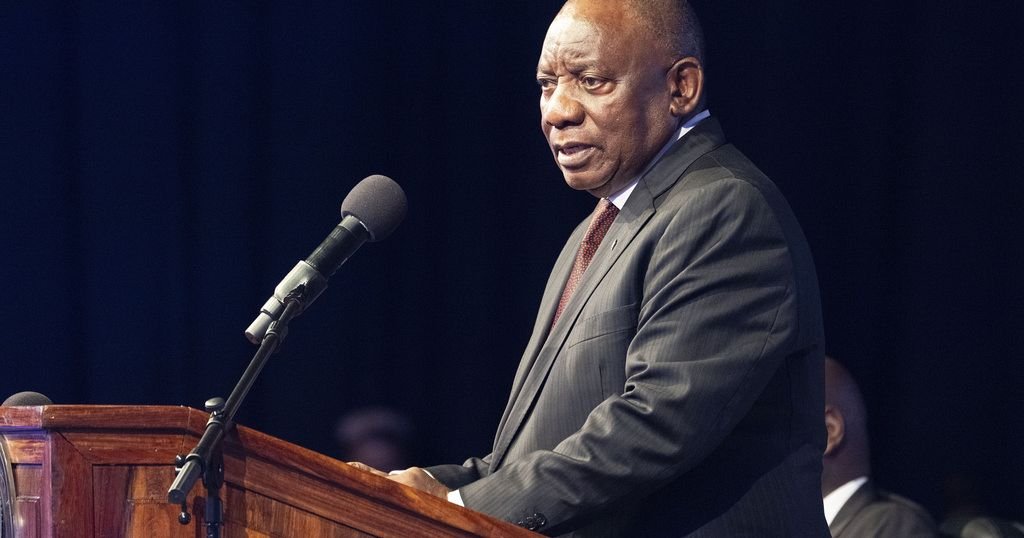
South African President Cyril Ramaphosa said Monday that the claim that white people are persecuted in his country is a “completely false narrative .” It was his latest attempt to push back against allegations by US President Donald Trump, Elon Musk, and some white minority groups in South Africa.
South African-born Elon Musk, who has regularly accused South Africa’s black-led government of being anti-white, repeated in a social media post this weekend that some political figures in the country are “actively promoting white genocide. “
In his weekly message to the nation, Mr Ramaphosa said South Africans “should not allow external events to divide us or pit us against each other”.
“In particular, we should challenge the completely false narrative that our country is a place where people of a certain race or culture are targeted for persecution.”
Mr. Ramaphosa did not name names, but his denial referred to allegations by Mr. Trump and others that South Africa is deliberately mistreating a white minority group known as Afrikaners by encouraging violent attacks on their farms and introducing legislation to seize their land.
These allegations were at the heart of an executive order issued by Mr. Trump last month, which cut funding to South Africa to punish the government while offering Afrikaners refugee status in the United States.
Afrikaners are descendants of Dutch and French settlers who arrived in South Africa over 300 years ago. They were at the heart of the apartheid government, which systematically oppressed non-whites, although South Africa largely succeeded in reconciling its many racial groups after the end of apartheid in 1994.
In his post on X, influential Trump adviser Musk cited a political rally last Friday in South Africa where Black leaders of a far-left opposition party sang a song with the lyrics: “Kill the Boer, the farmer .” Boer is a word for an Afrikaner.
“Very few people know that there is a major political party in South Africa that actively promotes white genocide,” Musk wrote. He added a link to a video of the rally.
Secretary of State Marco Rubio wrote on X late Monday that the song “is a chant that incites violence. South African leaders and politicians must take steps to protect Afrikaners and other disadvantaged minorities. The United States is proud to offer these people who qualify for admission to our country, despite this horrific threat of violence that continues. “
The party in question, the Economic Freedom Fighters, is the fourth largest in parliament and a political opponent of Mr. Ramaphosa’s African National Congress. It won 9.5% of the vote in last year’s national elections. It has faced scrutiny for previously stoking racial tensions and for singing the song, which was used during apartheid as a call to fight government oppression.
The song’s current use has been criticized by some in South Africa, including other political parties, and a group representing Afrikaners has challenged its use in court. More than a decade ago, the song was deemed hate speech and banned by a court.
But it was the subject of several other legal proceedings before a 2022 ruling found it was not hate speech and was protected by freedom of expression because there was no evidence it incited violence. The EFF says it is a historical chant that should not be taken literally and has sometimes changed the lyrics to “kiss the Boer. “
Since Mr. Trump’s executive order, the South African government has sought to dispel what it says is misinformation about white farmers, who are sometimes victims of violent attacks in their homes. The government has condemned the attacks, but experts say there is no evidence that white people are being widely targeted and that they are, in fact, part of South Africa’s extremely high crime rate, which affects all races.
The Afrikaner group claims that police have sometimes undercounted farm homicides in official statistics. It recently said it had figures showing there were eight farm homicides in the three months between October and December last year, while police recorded only one.
According to police statistics, there were a total of 6,953 homicides in South Africa during the same period.
Africa
DR Congo Justice Minister under fire over $19M transfer
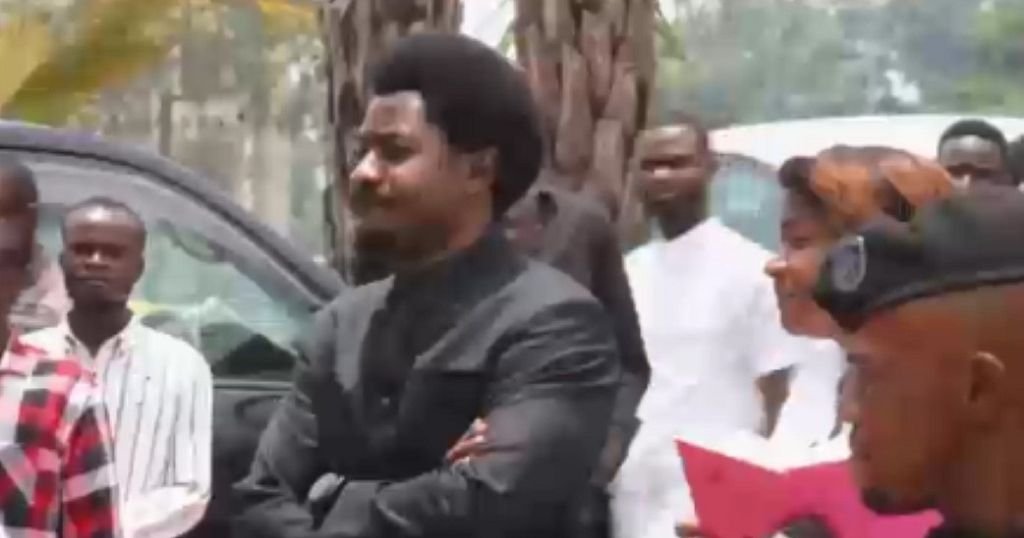
In the Democratic Republic of Congo, pressure is mounting on Justice Minister Constant Mutamba after explosive allegations over a multi-million dollar no-bid contract and suspicious fund transfers.
On Tuesday, lawmakers grilled the Attorney General for six hours and Mutamba for five. The focus: a $29 million deal awarded without competition, and a $19 million payment to Zion Construction—wired just one day after the company opened its bank account.
The funds didn’t come from the state treasury, but from FRIVAO, the agency managing $325 million in war reparations from Uganda. That agency falls under Mutamba’s direct authority. Defending himself, the minister admitted to “errors” and asked for forgiveness—but claimed he’s the target of political revenge.
He also blamed tensions with Prime Minister Judith Suminwa for a toxic work climate. Lawmakers say the accusations are serious, and the judiciary must be allowed to act. Mutamba’s future in government now hangs in the balance.
Africa
U.K-Egypt: Mother of jailed activist hospitalised amid hunger strike
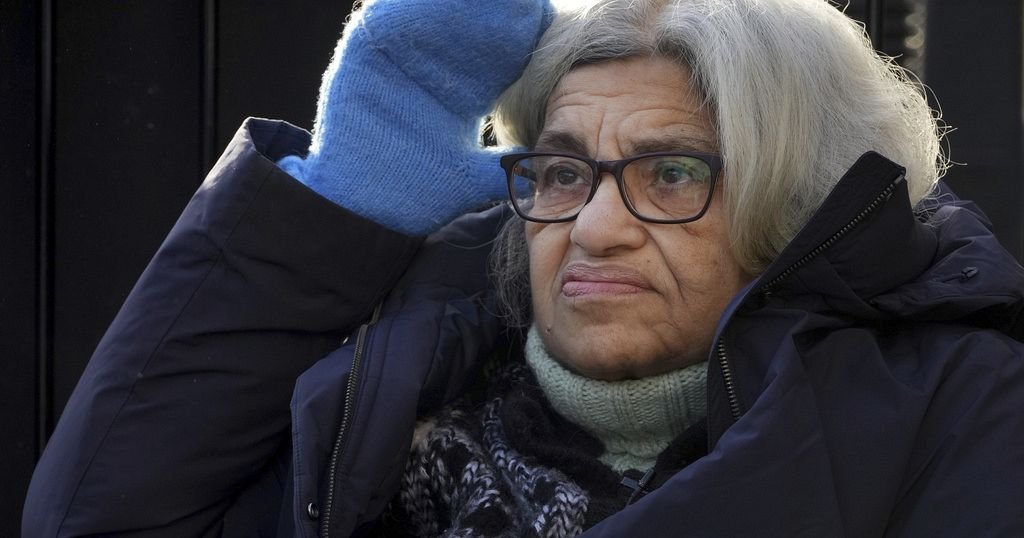
The mother of a pro-democracy activist imprisoned in Egypt is seriously ill in a London hospital after resuming a hunger strike aimed at pressing for her son’s release, her family said Friday. Laila Soueif was admitted to St Thomas’s Hospital on Thursday night with dangerously low blood sugar levels. “The bottom line is, we’re losing her,” her daughter, Sanaa Souief, said outside the hospital. She added: “(Prime Minister) Keir Starmer needs to act now. Not tomorrow, not Monday, now, right now.”
Laila Soueif has been on hunger strike since September 29 to protest the imprisonment of Alaa Abdel-Fattah, a British-Egyptian dual national who has been in prison in Egypt since September 2019. He was sentenced in December 2021 to five years in prison for spreading false news and should have been released last year, but Egyptian authorities refused to count the more than two years he had spent in pre-trial detention and ordered him held until January 2027.
Laila Souief spent weeks camped outside Britain’s Foreign Office and the prime minister’s Downing Street office to highlight her son’s case. She was previously admitted to hospital in February, with doctors warning she was at “high risk of sudden death.” She agreed in early March to move to a partial hunger strike after Starmer pledged to press Egypt to release her son. She resumed her full hunger strike on May 20, saying: “Nothing has changed, nothing is happening.”
The family says Souief has lost 42% of her bodyweight during the 242-day hunger strike. They say she has received glucagon treatment, which induces the liver to break down stored fat to obtain glucose, but continues to refuse glucose, which would provide her with calories. Abdel-Fattah has been on his own hunger strike for 90 days following his mother’s admission to hospital in February. Thousands of critics of Egyptian President Abdel Fattah el-Sissi have been locked up under dire conditions after unjust trials, human rights groups say.
The British government said that Starmer raised Abdel-Fattah’s case in a call with the Egyptian president last week, and Middle East Minister Hamish Falconer discussed it with Egypt’s Foreign Minister Badr Abdelatty on Sunday. “We are concerned to hear of Laila’s hospitalization. We remain in regular contact with Laila and her family and have checked on her welfare,” the Foreign Office said in a statement. “We are committed to securing Alaa Abdel-Fattah’s release and continue to press for this at the highest levels of the Egyptian government.”
Africa
Deadly floods sweep Nigeria | Africanews

Torrents of predawn rain unleashed flooding that killed at least 150 people in a market town where northern Nigerian farmers sell their wares to traders from the south, officials said Friday as they predicted that the death toll would grow. The Nigerian Hydrological Services Agency did not immediately say how much rain fell after midnight Thursday in the town of Mokwa, which sits in the state of Niger more than 180 miles (300 kilometers) west of Abuja, capital of Africa’s most populous nation. Communities in northern Nigeria have been experiencing prolonged dry spells worsened by climate change and excessive rainfall that leads to severe flooding during the brief wet season. In videos and photos on social media, floodwaters covered neighborhoods and homes were submerged, with their roofs barely visible above the brown currents. Waist-deep in water, residents tried to salvage what they could, or rescue others. Mokwa, nearly 380 kilometers (236 miles) west of Abuja, is a major meeting point where traders from the south buy beans, onions and other food from farmers in the north. A community leader from the Mokwa local government Area, Alhaji Aliki Musa, says this type of flood is seasonal and its not ordinary. “The water is like spiritual water which used to come but it’s seasonal…there’s not much water in Mokwa that will bring that flood,” he said. In September, torrential rains and a dam collapse in the northeastern city of Maiduguri caused severe flooding that left at least 30 people dead and displaced millions, worsening the humanitarian crisis caused by the Boko Haram, a self-proclaimed jihadist militant group based in northeastern Nigeria.
-

 Africa4 days ago
Africa4 days agoSurvivor of Liverpool car ramming talks of shock and panic
-

 Sports3 days ago
Sports3 days agoThe Knicks are bringing hope and title dreams back to New York after years in the doldrums
-

 Lifestyle4 days ago
Lifestyle4 days agoHow to decorate a patio, balcony or other small outdoor space
-

 Lifestyle3 days ago
Lifestyle3 days agoFaizan Zaki hopes to go from spelling bee runner-up to champ
-

 Lifestyle3 days ago
Lifestyle3 days agoChildren and careers: Talking to kids about what they want to be when they grow up
-
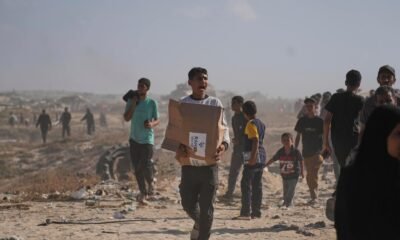
 Middle East4 days ago
Middle East4 days agoGaza’s aid system isn’t broken. It’s working exactly as designed | Humanitarian Crises
-

 Europe5 days ago
Europe5 days agoMacron’s marital shove disappears from French airwaves
-
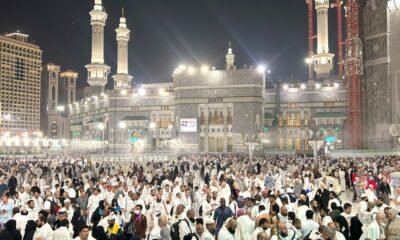
 Middle East4 days ago
Middle East4 days agoHajj pilgrimage in Saudi Arabia to begin on June 4 | Religion News




